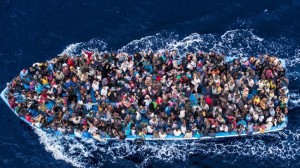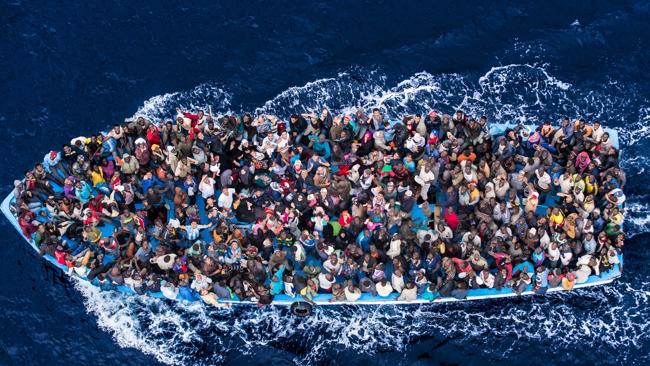By Libya Herald staff.

Tripoli, 25 August 2014:
Over the past five years Libya has failed to deal effectively with illegal . . .[restrict]immigration an official from the UN-backed International Organisation for Migration (IOM) has said.
In an interview following the deaths of scores of migrants in the Mediterranean, the official, speaking on condition of anonymity, also told the Libya Herald that the European Union needed a unified approach to the problem of illegal migration in Libya.
He said the original tragedy in 2009, in which 200 African migrants died off the coast of Libya, had “surprised and saddened the world” adding that the problem still exists.
The navy announced two days ago that at least 170 individuals were drowned as they attempted to reach Europe. Naval spokesman Ayoub Qasim said of those only 17 had been rescued by the coast guard on Saturday. Subsequent unconfirmed reports have claimed that as many as 250 people were aboard the wooden boat when it sank just one mile off the coast near Garabulli. There has been no further official response to the tragedy.
There has been a massive spike in the number of deaths at sea since the start of the summer. Traffickers make use of the calmer summer seas in their attempts to get more and more migrants to Europe. In mid-May some 60 migrants lost their lives when two boats sank over two days in separate incidents.
The Italian government has criticised the EU for the lack of help in dealing with the crisis. It says it spends about €9 million a month in efforts to curb illegal migration and assist vessels in distress around the Italian coast. Yet, according to Italian Interior Ministry statistics, 36,627 migrants had already landed along Italy’s southern coast in the first half of 2014.
The Libyan government has taken the view that the tens of thousands of migrants leaving Libya’s shores for Europe are primarily Europe’s problem. Acting Interior Minister Saleh Mazegh said in May that if the EU did not take a tougher stand, Libya would open the floodgates to allow Africans to head to the continent.
The EU Integrated Border Assistance Mission in Libya (EUBAM) introduced a number of initiatives in hope of curbing the rising flow of migration. These included coastguard training and instruction to border guards. The government also created a new border protection agency within the Ministry of Interior, but the problem has intensified. Human rights NGOs have meanwhile documented a series of human rights abuses at facilities where illegal migrants are held.
People-trafficking from coastal towns has grown steadily since the revolution. Over the last year, as the government’s already-limited authority waned further, it has positively flourished. It is alleged that people-traffickers actually use the Italian Navy in their operations, by abandoning their boats and passengers, the minute they sight an Italian vessel.
[/restrict]







